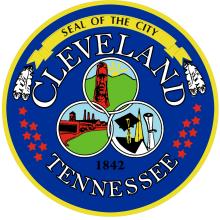Cleveland, Tennessee’s City-Owned Utility Getting Into Broadband Business
The Cleveland, Tennessee city council has approved the creation of the Cleveland Utilities Authority, the first step in allowing the city-owned utility to get into the broadband business. The goal: improve utilities services and provide city residents with faster, cheaper, and more reliable fiber access after years of neglect by often-apathetic regional telecom monopolies.
The plan, approved by the city council with a 7-2 vote (see full video here), paves the way for Cleveland’s city-owned utility, Cleveland Utilities, to begin deployment of a $72 million fiber network. The city’s plan, documented in detail here, is heavily inspired by the successes seen by Chattanooga, Tennessee’s publicly-owned utility, EPB.
Of the initial $72 million investment, $64 million will be funded by public-issued debt, and go towards construction of the network, which Cleveland Utilities states should begin in March of 2024 and be completed in “roughly two to three years” barring complications.

An additional interdivisional loan of $8 Million will fund three years of operation for the new division. The utility’s plan is based on a 30 percent take rate, and aims to become cash flow positive between years 2-3, with all debt paid between years 10 and 12.



